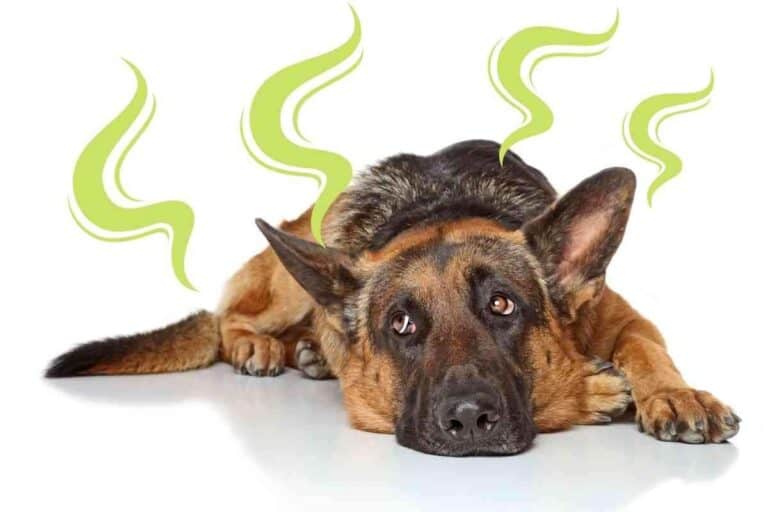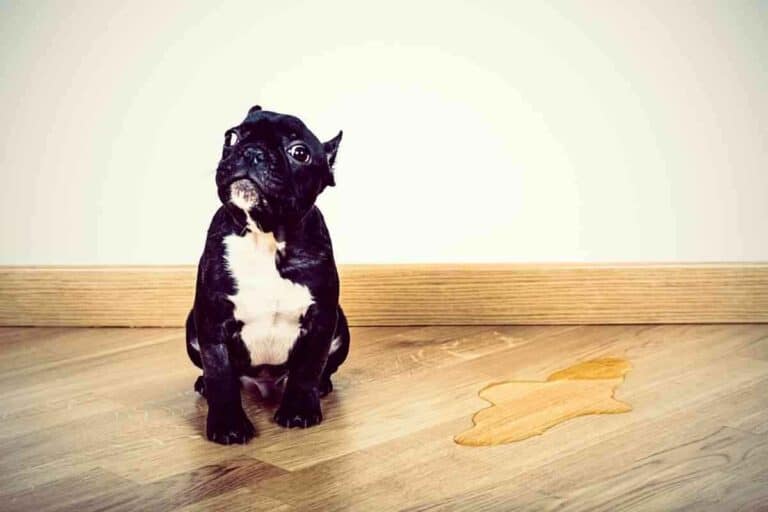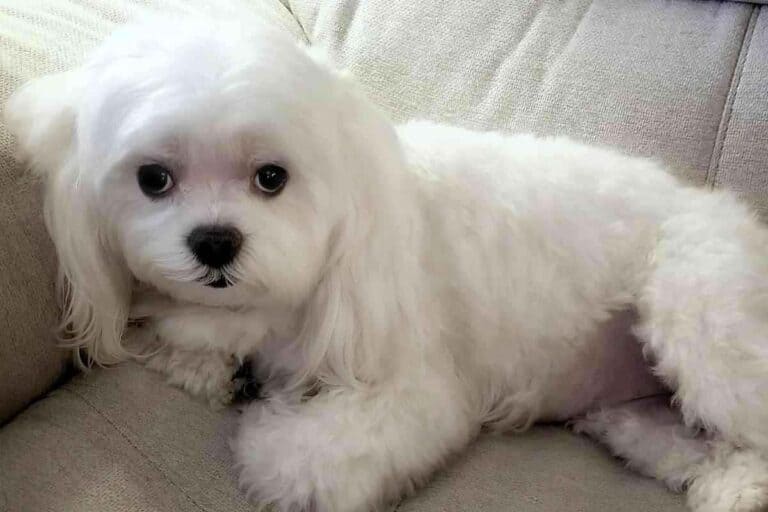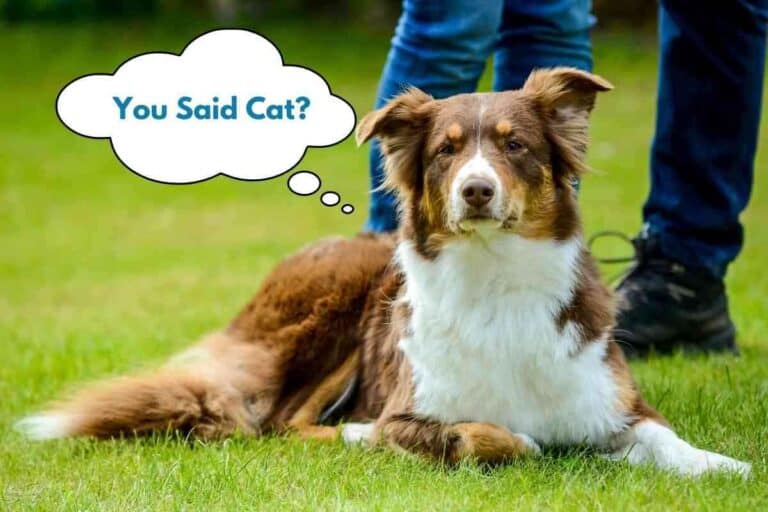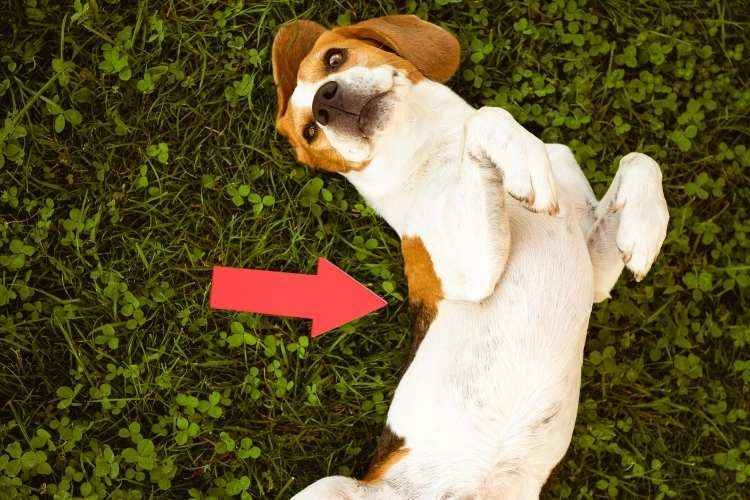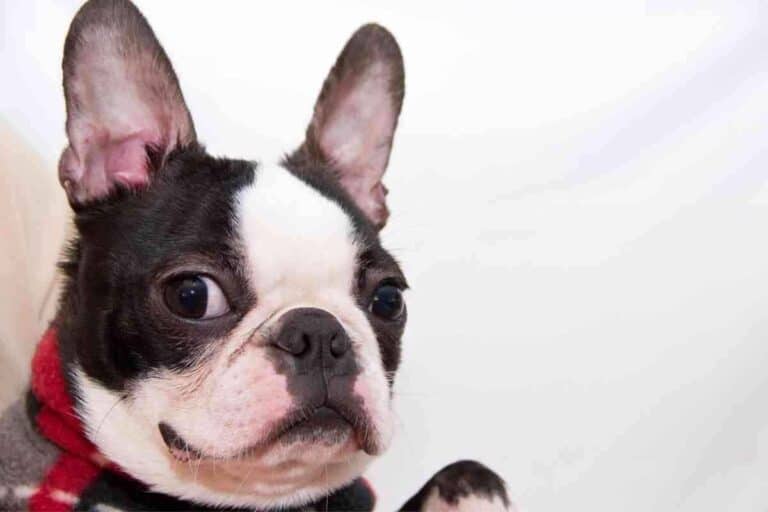Do Beagles Drool? 4 Reasons Yours Is A Drooler!
Whether you are thinking of getting a Beagle or already have one, there’s a question you may be asking yourself: do Beagles drool? Maybe you’ve heard these dogs are droolers and want to be prepared if you decide to bring one into your home. Perhaps you own a Beagle and she seems to be drooling more than usual, and it’s starting to concern you. Whatever the reason, knowing if these breeds tend to drool a lot is a question on your mind.
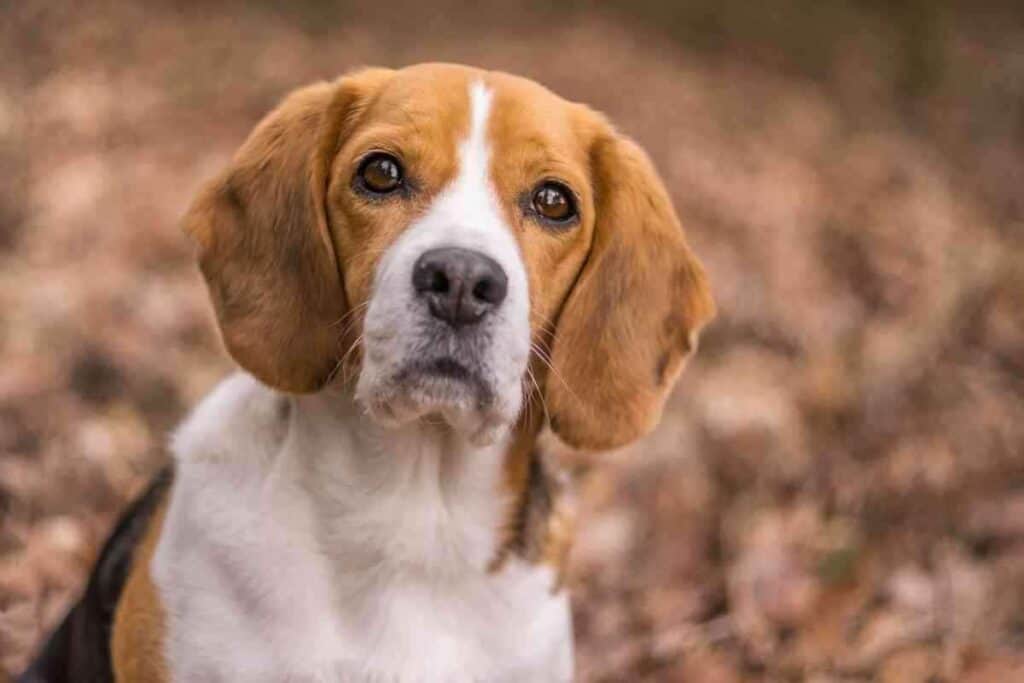
Do Beagles drool a lot?
Beagles do tend to drool a lot. Though the reasons vary, most Beagles drool when they are young and teething, because they’ve just done a lot of exercise, when they see food, or when they are riding in the car.
Though Beagles are sweet, fun-loving, fantastic family dogs, having a drooler can be a nuisance for many people. Knowing why your pooch is drooling and if there are ways to prevent it will make living together more enjoyable. And, it is a good idea to know if your Beagle’s drooling is just gross or cause for concern.
I have lived with dogs that are horrible droolers. Though I’ve loved every one of them, drool is still an unpleasant part of dog-ownership that most of us would like to avoid, or at least minimize if we can. Let’s dive into why Beagles drool and what steps can be taken to manage it.
Do Beagles Drool?
Drool happens. Some breeds are known for their slobber, like Saint Bernards or bloodhounds. Beagles don’t drool as much as these breeds do, but they still drool more than others, like chihuahuas and Dachshunds.
Some drooling is unavoidable, while other times it may be behavioral. Knowing which it is for your fur buddy will help you decide if you can do anything about it.
Drooling Because of Teething
Around the time your Beagle is three months old, its baby teeth will start to fall out and be replaced by adult teeth. This is the teething stage. By the time they are seven months old, a Beagle’s adult teeth will be fully intact (42 to be exact). That’s a lot of changes to your young pup’s mouth!
All of this activity will cause your dog’s gums to be sore. Excess saliva will not only alleviate some of that pain, but will also act as extra lubricant to help those baby teeth slide out more easily.
This kind of drool is temporary and will slow down once the teething process is over. Give your pup lots of toys that she can safely gnaw and don’t scold her for drooling. As with all things puppy-related, this too shall pass.
Drooling Because of Exercise
Because Beagles don’t sweat, the only way they can cool off is through panting. Panting is when a dog breathes with short, quick breaths and with an open mouth. This panting often results in extra saliva leaking out of their mouths and causing them to drool.
Just like us humans, exercise is great for your Beagle buddy. But, be careful not to overdo it. Beagles can overheat easily if the exercise is particularly strenuous, the day is especially hot, or they are out of shape and asked to do more than they are ready to.
If your Beagle’s panting becomes shallow, or their drooling becomes excessive, back off on the activity and give them a chance – literally – to catch their breath. Carrying water when you know you both will be out for a while will also help alleviate their drool since being properly hydrated will help their panting slow down.
Drooling Because of Food
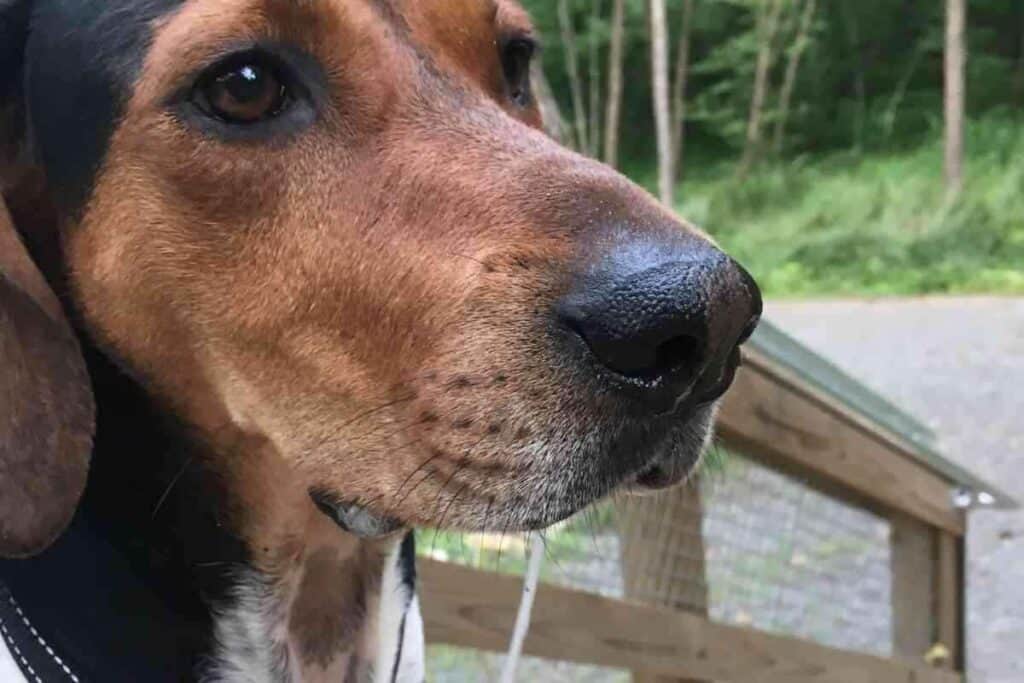
I don’t know about you, but the smell of a backyard bar-b-que or a fresh pan of brownies can make me want to drool.
But…I am a human, and therefore have better social etiquette than a Beagle (hopefully). So I try to refrain.
Beagles are easily motivated by food. This breed does experience hunger more often than some, and they are not shy to admit it.
Their desire for food will make them drool when they see it or anticipate it. At the same time, their body will encourage the salivary glands to begin working, because excess saliva will help them break down and process the food, once they actually eat it.
Beagles drool for food. Whether this reaction is physical or psychological, you probably won’t be able to change it. Give her dinner, and the drooling will subside. At least until the next meal.
Drooling Because of Motion Sickness
Anyone who has ever experienced feeling carsick will relate to this one.
Certain Beagles will drool excessively when they have to travel by car. Just like humans, they may be prone to nausea, headaches, vomiting, or ear discomfort – all signs of motion sickness when riding in a car. These uncomfortable annoyances may also result in your pooch drooling more than normal, as she tries to deal with the discomfort she’s experiencing.
Car travel can also cause anxiety for certain Beagles. Maybe they associate it with a trip to the groomer or vet, or just don’t like the feeling of being in a moving vehicle with no idea of what’s coming next. This kind of stress can cause your pooch to drool. She doesn’t have the words to tell you she’s worried. Her saliva tries to do it instead.
A puppy who is prone to motion sickness may outgrow it as her inner ear becomes more developed. In the meantime, you can help your Beagle feel better on car rides by keeping her in an upright position with a car harness, making frequent stops if you’re traveling long distances, and reassuring her during travel. Your Beagle is smart and attuned to your emotions – if your stress is low, hers will be also.
When Should I Be Worried About My Beagle’s Drool?
Hopefully, I’ve reassured you that in most instances, Beagle drool is normal (though maybe messy!) But when is there cause for concern? If your Beagle’s drooling has gotten substantially worse, there might be some underlying reasons that are worth checking out.
Dental Issues
When a Beagle is teething, it’s normal for her to drool. But, once your pup is past the baby stage, any drooling could have to do with teeth issues that are now cause for concern. Built-up tartar or having a foreign object stuck in her teeth could be causing that extra saliva, and you will want to get it checked out.
Sickness
We all act differently when we are sick, and dogs are no exception. If your Beagle is experiencing nausea, fever, vomiting, or respiratory distress, she may drool more than usual. These are all reasons to have a veterinarian take a peek at your pooch and rule out anything that might be something serious.
Anxiety
Feeling uncomfortable manifests itself in different ways. Dogs, who can’t use words to communicate, will often show behavior that is different than normal. Drooling is one of those, and is a very common sign that something is making your Beagle feel stressed and anxious. If you can get to the root of the problem, her drooling problem might go away.

